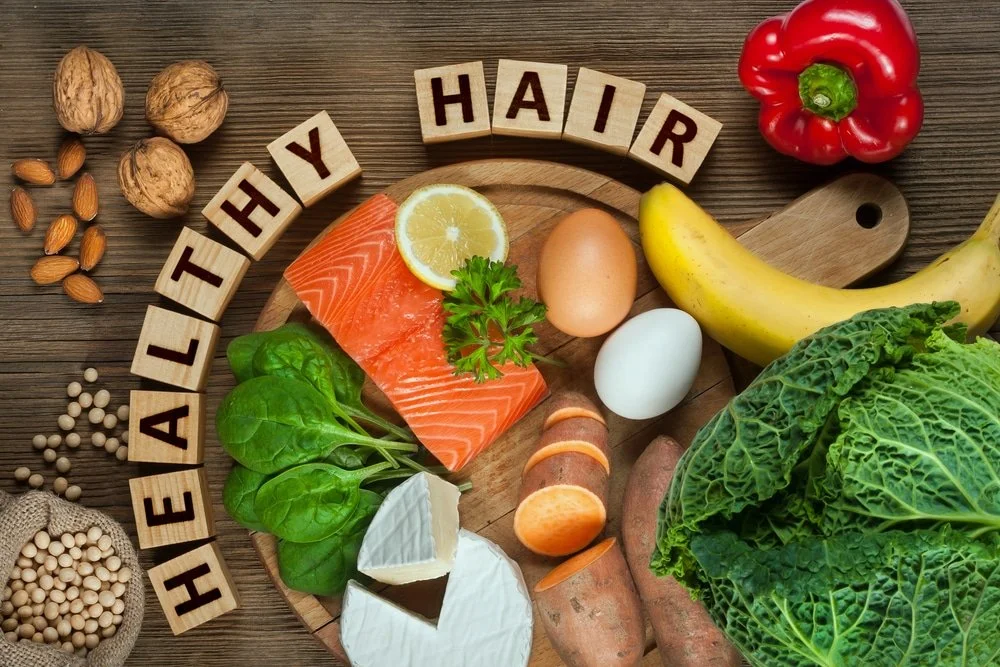The Importance of Upkeeping Healthy Hair: Tips for Maintaining a Gorgeous Mane
Healthy hair is often seen as a symbol of vitality and personal care. Yet, maintaining beautiful, strong hair requires more than just occasional treatments or trendy products. It involves a consistent and holistic approach to hair care that includes proper nutrition, regular maintenance, and mindful practices. In this blog, we'll explore why upkeeping healthy hair is crucial and provide practical tips to help you achieve and maintain a stunning mane.
Why Upkeeping Healthy Hair Matters
Boosts Confidence: Well-maintained hair can significantly boost self-esteem and confidence. Healthy, vibrant hair is often associated with overall well-being and personal grooming, making you feel more assured in social and professional settings.
Reflects Overall Health: Your hair is a reflection of your overall health. Healthy hair can indicate a balanced diet, good hydration, and effective management of stress. Conversely, hair issues such as thinning or dryness may signal underlying health problems.
Prevents Damage and Breakage: Regular care and maintenance help prevent common hair issues like split ends, breakage, and frizz. By addressing these problems early, you can keep your hair looking smooth and shiny.
Supports Growth and Strength: Proper hair care promotes optimal growth and strength. Healthy hair follicles are essential for sustaining continuous growth and preventing premature hair loss.
Enhances Aesthetic Appeal: Consistent hair care contributes to a polished and well-groomed appearance. Whether you prefer sleek, straight styles or bouncy curls, healthy hair provides a better foundation for styling and maintaining your desired look.
Essential Tips for Upkeeping Healthy Hair
Follow a Balanced Diet: Nutrition plays a vital role in hair health. Ensure your diet includes a variety of nutrients that support hair growth and strength:
Protein: Hair is primarily made of protein, so include sources like lean meats, fish, eggs, and legumes.
Vitamins and Minerals: Incorporate foods rich in vitamins A, C, D, E, and B-complex, as well as minerals like iron, zinc, and magnesium. Fruits, vegetables, whole grains, and nuts are excellent choices.
Stay Hydrated: Proper hydration is essential for maintaining healthy hair. Drinking enough water helps keep your scalp and hair hydrated, reducing dryness and brittleness.
Choose the Right Products: Select hair care products that suit your hair type and needs. Use shampoos and conditioners formulated for your specific hair concerns, whether they be moisture, volume, or color protection.
Avoid Over-Washing: Washing your hair too frequently can strip it of its natural oils. Aim to wash your hair 2-3 times a week or as needed based on your hair type and lifestyle.
Use Heat Protectants: If you use heat styling tools like blow dryers, curling irons, or straighteners, always apply a heat protectant. This helps shield your hair from damage caused by high temperatures.
Trim Regularly: Regular trims are essential for preventing split ends and maintaining the shape of your hairstyle. Aim for a trim every 6-8 weeks to keep your hair looking fresh and healthy.
Avoid Tight Hairstyles: Hairstyles that pull tightly on your hair can cause stress and lead to breakage. Opt for looser styles and avoid using elastic bands that can snag and damage your hair.
Protect Your Hair from Environmental Damage: Sun exposure, chlorine, and saltwater can all damage your hair. Wear a hat or use hair products with UV protection when exposed to the sun. Rinse your hair with clean water before swimming and use a swim cap if possible.
Be Gentle When Brushing: Avoid aggressive brushing, especially when your hair is wet. Use a wide-toothed comb or a brush designed for wet hair to detangle gently and minimize breakage.
Manage Stress: High levels of stress can impact hair health, leading to issues like hair loss or thinning. Practice stress-reducing techniques such as exercise, meditation, or hobbies to support overall well-being.
Addressing Common Hair Concerns
Dry or Damaged Hair: Use deep conditioning treatments or hair masks to restore moisture and repair damage. Avoid overuse of heat styling tools and opt for products designed to nourish and hydrate your hair.
Oily Scalp: If you have an oily scalp, consider using a clarifying shampoo or dry shampoo to manage excess oil. Avoid overwashing, as this can trigger more oil production.
Hair Loss: If you’re experiencing significant hair loss, consult a healthcare professional or dermatologist. They can help determine the cause and recommend appropriate treatments or lifestyle changes.
Dull Hair: For lackluster hair, incorporate shine-enhancing products or treatments. A vinegar rinse or a professional gloss treatment can add shine and enhance your hair’s appearance.
Upkeeping healthy hair is more than just a beauty regimen; it’s an investment in your overall well-being and self-confidence. By adopting a comprehensive approach that includes proper nutrition, mindful hair care practices, and regular maintenance, you can achieve and maintain a stunning mane that reflects your inner health and vitality. Remember, healthy hair requires consistent effort and attention, but the results are well worth it. Embrace these tips and enjoy the benefits of having vibrant, strong, and beautiful hair.


